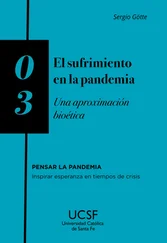Ted Bell - Phantom
Здесь есть возможность читать онлайн «Ted Bell - Phantom» весь текст электронной книги совершенно бесплатно (целиком полную версию без сокращений). В некоторых случаях можно слушать аудио, скачать через торрент в формате fb2 и присутствует краткое содержание. Жанр: Триллер, на английском языке. Описание произведения, (предисловие) а так же отзывы посетителей доступны на портале библиотеки ЛибКат.
- Название:Phantom
- Автор:
- Жанр:
- Год:неизвестен
- ISBN:нет данных
- Рейтинг книги:3 / 5. Голосов: 1
-
Избранное:Добавить в избранное
- Отзывы:
-
Ваша оценка:
- 60
- 1
- 2
- 3
- 4
- 5
Phantom: краткое содержание, описание и аннотация
Предлагаем к чтению аннотацию, описание, краткое содержание или предисловие (зависит от того, что написал сам автор книги «Phantom»). Если вы не нашли необходимую информацию о книге — напишите в комментариях, мы постараемся отыскать её.
Phantom — читать онлайн бесплатно полную книгу (весь текст) целиком
Ниже представлен текст книги, разбитый по страницам. Система сохранения места последней прочитанной страницы, позволяет с удобством читать онлайн бесплатно книгу «Phantom», без необходимости каждый раз заново искать на чём Вы остановились. Поставьте закладку, и сможете в любой момент перейти на страницу, на которой закончили чтение.
Интервал:
Закладка:
The driver saw the gun and the look in the madman’s eyes in the same instant. He turned to dive for the brake control, a large bright red lever on the panel, but it was too late.
Gaston cut him in half with the Glock.
The train continued at speed, racing toward St. Pancras station. After its renovation, with its lovely Victorian architecture and soaring clock tower, many people consider it the most beautiful train station in the world. To the east, just across Midland Road, stands the British Library.
Through the raked-back windows ahead of him, Gaston could see the tower of the massive redbrick station hove into view on the tracks ahead. Buildings to either side were a blur. Behind him, he could hear horrific screaming as the passengers, realizing that the train was not slowing down for the station, was going to plow right into it at nearly full speed.
Gaston said, “London,” and put the barrel of the pistol into his mouth.
Seconds before the horrific crash made a hellish cauldron of St. Pancras, killing or maiming hundreds of passengers both on the train and inside the flying glass and twisted steel ruin of the lovely old station, Gaston de Montebello pulled the trigger and blew the back half of his head off.
The music died with him.
Forty
Cambridge University
Hawke was quiet en route to Cambridge, an easy hour-and-a-half drive north on the M11. Congreve’s morning flight from Paris had arrived on time. They’d departed Heathrow’s Terminal One and been on the road by ten. He’d always found the leather and walnut interior of the old Bentley Locomotive a good place to think. As his late friend, the brilliant David Ogilvy, a British advertising man, had once famously said, “At sixty miles an hour, the loudest sound is the ticking of the clock.”
Congreve, for his part, gazed out the window at the late summer foliage, enjoying the first hint of fall in the air. He too kept mum. Both men were thinking about the same thing, the horrific train crash at St. Pancras station one week earlier. Britain was still reeling from the shock. For the last two days, Ambrose and a team composed of MI5 and Scotland Yard officers had been meeting with their counterparts at the Prefecture de Police headquarters on the Ile de la Cite in Paris. The investigation was still ongoing.
But the famous criminalist seated to Hawke’s left, still turning the thing over in his mind, had come to some conclusions that differed from those of the French. They were already ruling it a suicide bombing. Ambrose Congreve was not.
Hawke broke the silence. “And how is your old friend at the rue de Lutece, Michel Gaudin?”
“Le Prefet? Still his old cocksure self, I’m afraid. Frequently wrong, but seldom in doubt.”
“I take it you two had a disagreement?”
“We certainly would have had I not kept my thoughts to myself. My conclusions may be premature. I’ll give les Gendarmerie a few days before weighing in.”
“This morning’s Times identified the terrorist. Not your run-of-the-mill sheik of Araby in a bomb vest.”
“Indeed not. A distinguished Nobel laureate in physics.”
“Who won the award for his recent breakthroughs in the field of artificial intelligence.”
“Yes.”
“Has a certain familiar ring to it, does it not?”
“Hmm,” Congreve murmured, still lost in thought.
“Talk to me. Perhaps even the Demon of Deduction could use a little help.”
“What? Oh. Of course. Well, as soon as I determined de Montebello was a physicist, I went immediately to the French Academy of Sciences and asked to meet with the man’s secretary. Lovely woman. Marie-Louise de Sartine by name. I took her to L’Ami Louis near Les Halles. Dreadful place, ghastly food, nightmarish waitstaff, but it’s the only place I’m guaranteed a table.”
“Did you ply her with champagne?”
“No need of that. She was delighted to have someone to talk to who might actually listen to her.”
“And, unlike the French police, take her seriously.”
“You’re one jump ahead of me. You’re thinking of Dr. Cohen’s widow.”
“Now we’re even. What did Mademoiselle de Sartine tell you?”
“Well. It seems the good doctor had an appointment that morning. With a government minister who’d come to present him with a prestigious award. Marie-Louise went in to inform him of the man’s arrival, but de Montebello waved her away. He was on the telephone and wished not to be disturbed. Mademoiselle de Sartine told me he kept the minister waiting for half an hour before she saw him disconnect the call and emerge from his office. He was wearing his hat and overcoat, carrying a briefcase she’d never seen before.”
“His behavior?”
“Exactly like Dr. Cohen’s. Robotic, stiff, oblivious to his surroundings. Ignored her pleas to meet with the minister. He simply kept repeating a single word in answer to her entreaties.”
“Yes?”
“Londres.”
“London. He had his instructions.”
“He did. We next see him on security videos at the Gare du Nord. Boarding the TGV.”
“Good Lord.”
“Alex, someone or something is systematically eliminating the world’s foremost scientists in the field of AI. The methods are identical. Induce a trance state telephonically-why on earth are you driving so bloody fast?”
“On the off chance that a certain professor at Cambridge is going to get a deadly phone call before we arrive.”
“Press on with alacrity, Alex, and don’t spare the horses.”
“Done.”
Hawke’s Locomotive leaped forward. The roaring power of the Bentley 4.5-liter engine and Amherst Villiers supercharger threw Congreve back in his seat.
P rofessor Sir Simon Partridge, a Life Fellow at Magdalene College and Nobel laureate in physics for his groundbreaking work in the field of artificial intelligence, swiveled his desk chair round to gaze through leaded-glass windows at the river Cam, that placid green stream flowing gently beneath his window. Two men were sitting in his anteroom, patiently waiting to see him, and he had no idea how much, or even what, to tell them. Lord knows, he had enough on his plate without this intrusion.
They were policemen, basically. One of them, Congreve, was a former head of Scotland Yard and had taken a doctorate at Cambridge. Took his degree in languages, oddly enough. The other, this Lord Hawke, was a well-known society figure of some repute. Name in the society pages now and then, cover of business magazines and their ilk. Less well known was the fact that he was a spook, a high-ranking operative at MI6. Any notion Partridge had had about feigning illness and begging off went out the window when he’d looked into their backgrounds.
Well, he thought, sooner the better.
He picked up the direct line to his assistant and said with sigh, “I suppose I’ll see them now. Although I am very, very busy, you see.”
“Yes, sir. Oh, there was a call for you earlier on your private line, rather odd. The caller who rang asked for you; I put him on hold to see if you were available and when I went back to the call, there was music of some kind. Quite eerie, to be honest. A crank call obviously, and I rang off immediately.”
“No one has that number, Sybil. Unless it was given them personally by me. By that I mean no one. You see?”
“I know that, sir. Very odd indeed. It’s why I thought you should know.”
“You don’t have that number, do you?”
“Certainly not, sir.”
“No need to get huffy about it. All right, then, Miss Symonds, send the two distinguished gentlemen into the lion’s den.”
Partridge was an old lion. Distressingly thin, he had a leonine head of thick white hair, clear blue eyes, a classically sculpted face with a Roman nose, and a strong jawline. He was dressed, as usual, in a frayed, open-collared shirt, rumpled grey flannel trousers, and an old brown tweed jacket, stooped in the shoulders. He was well known at the university, not for his style, but for his patrician and distracted air, his wit and brilliance.
Читать дальшеИнтервал:
Закладка:
Похожие книги на «Phantom»
Представляем Вашему вниманию похожие книги на «Phantom» списком для выбора. Мы отобрали схожую по названию и смыслу литературу в надежде предоставить читателям больше вариантов отыскать новые, интересные, ещё непрочитанные произведения.
Обсуждение, отзывы о книге «Phantom» и просто собственные мнения читателей. Оставьте ваши комментарии, напишите, что Вы думаете о произведении, его смысле или главных героях. Укажите что конкретно понравилось, а что нет, и почему Вы так считаете.












